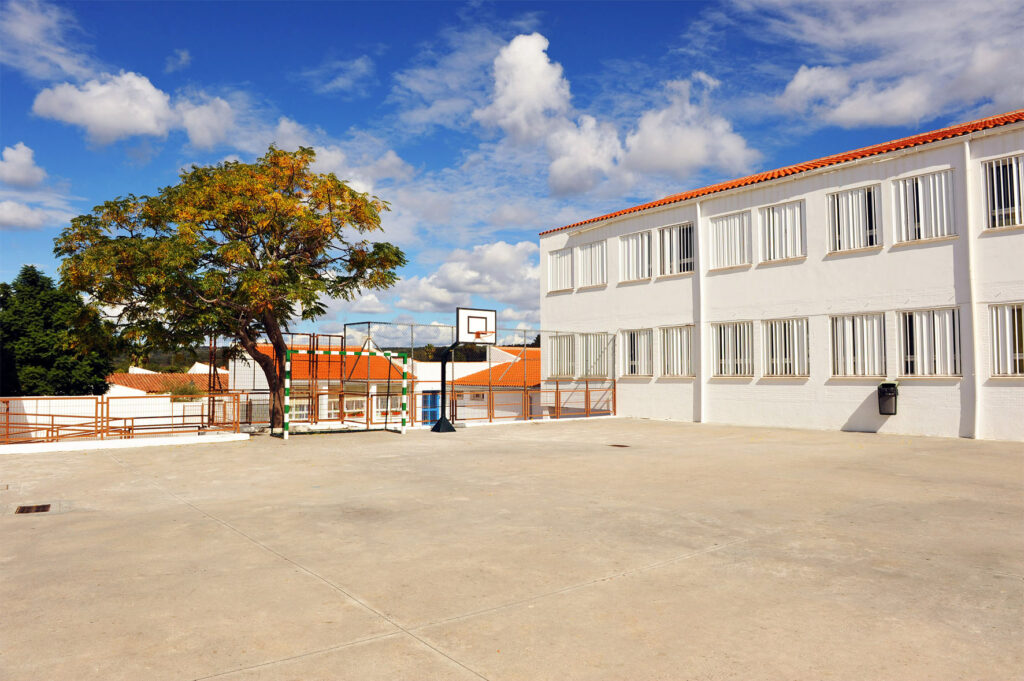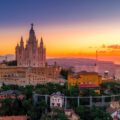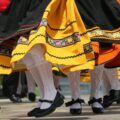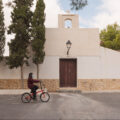Spain: Religious education up for debate
Spain: Religious education up for debate
New legislation in Spain aims at further scaling back the influence of the Catholic Church in Spanish public education. This raises the question of how religious education should be taught in the public sphere.
This article is part of our series on the role of religion in education across Europe.
The relationship between religion and education has a long and contentious history in Spain, with the question often closely linked to the political polarisation that has defined the country’s recent past. In 2021, these divides continue to be a relevant feature of political and social discourse. With new legislation recently introduced with the aim of further scaling back the influence of the Catholic Church in public education, the question of how religion should be taught in the public sphere remains a topic of great importance.
The Catholic Church and public education: a brief history
Before looking at the debate surrounding the current legislative changes, it is important to briefly consider the history of religion in the Spanish education system.
Following the Spanish Civil War (1936-1939), the fascist dictatorship led by General Franco imposed an official state ideology of ‘National Catholicism’. This ideology gave great power to the Catholic Church in forming social policy, leading to policies such as divorce, abortion, and homosexuality being illegal. In terms of education, the Francoist state aimed to utilise public education as a means of political indoctrination. This included placing Catholic rituals and ideas at the centre of the daily life of school children across the nation.[1] However, in the years since the transition to democracy, completed in 1979, the influence of the Catholic Church in the public education of Spanish students has been in decline. The way in which these changes have materialised has been closely linked to the country’s two-party political system, with the Socialist Party (PSOE) generally attempting to reduce the influence of religious ideas in secular education, and the conservative Popular Party (PP) aiming to maintain it.[2]
The continuation of this battle between the two major forces in Spanish politics was evident in 2015, when the PP government introduced new legislation designed to protect the teaching of Catholic ideas in public education. This new law on education, known as LOMCE (the organic law on the improvement of educational quality), required that students were taught religious studies classes in which textbooks re-stated the ‘fact’ that the cosmos was created by divine inspiration, amongst other Catholic teachings.[3] Meanwhile, as evidence of the depth of the division, in the same year, the PSOE maintained a political position which said that, if elected, they would ‘pull religion courses from both public and private schools’.[4]
The Celaa Law: the debate in 2021
Fast forward to 2021, and with the PSOE returning to government in a progressive coalition with the far-left Podemos party, the debate on RE has led to new legislative changes. In late 2020, the Spanish parliament approved a wide-ranging set of changes to the country’s public education system, including a specific focus on RE. The most significant of these was a reversal of the previous PP policy of mandating religious education for all students. Under the new laws, students will be allowed to take classes in either religious studies or a secular subject called ‘Ethics and Values’, with the qualifications for both subjects being considered of less value than other subjects when applying for further education or writing CVs.[5]
The change to the teaching has predictably led to opposition from the Catholic Church. In one case, Bishop Beltran complained of the fact that the new law had been approved “without dialogue nor consensus” with church figures.[6] More broadly, the Bishops Conference released a statement in October 2020 in which they said that “the subject of Religion is left even further discriminated against and gravely threatened in the school curriculum.”[7] Yet, whilst the criticisms of the law from the leading Bishops’ organisations were focused more directly on the legislative change, the government’s transformation of RE has been seen by other Catholic leaders as a part of a wider attack on their faith that they see as having been led by the progressive coalition. For example, Bishop Antonia Reig Pla complained that the new system of teaching RE was a result of “ideological bias.”[8] Furthermore, in a more expressive example, the Bishop of Cordoba, asked whether next, after the education change, “they would ban us for breathing Catholic?”[9]
It is therefore important to remember that the debate over religious education in Spain is closely linked to wider political polarisation and the ongoing battle over what role Catholicism should play in a modern, and secular, democracy.
Islamic education in Spain
Before concluding, it is important to briefly consider Spain’s Islamic community, which numbers around 2.1 million people as of 2019.[10] In particular, there is a large Muslim population in Catalonia, where 4.8% of citizens in 2016 followed the faith. However, crucially, in the age group of 16-34, that number rises to 8.7%.[11] With this young and growing Islamic population, the regional government of Catalonia, which under Spain’s federal system has significant powers in dictating curriculum, has agreed to begin a pilot programme to trial the teaching of Islam in religious education classes. Under the plan, the Islamic Commission of Spain will appoint teachers to offer classes on Islam to students who wish to take them. These classes will be subject to the same rules as those applied to the teaching of the Catholic faith.[12]
The policy has received support not only from the Islamic community, but also from certain members of the Catholic faith. For example, the Bishop of Valladolid, Ricardo Blasquez, argued that the Spanish constitution extends to people who have migrated to Spain, and therefore if they want their children to receive education about their faith, then “it must be facilitated.”[13] Blasquez’s support is evident of the fact that although from a different faith, both Catholics and Muslims do share in the idea that whilst schools may be secular institutions, religion should not be removed entirely from education.
Our team of analysts conducts research on topics relating to religion and society. In April, May and June 2021, we are focusing on the subject of education. Find out more on the EARS Dashboard.
[1] (PDF) Indoctrination and control: education in the Spanish Franco Regime
[2] Spain starts the academic year with the seventh educational law in 45 years
[3] Why there’s still faith in the Spanish education system
[4] El PSOE quiere eliminar la Religión incluso en los colegios privados
[5] Los puntos más polémicos de la ‘ley Celaá’: del castellano a la religión
[6] Ginés García Beltrán: “Es una pena que España inaugure una ley nueva de educación cada vez que hay un cambio de gobierno. Nos merecemos algo más”
[7] La Iglesia confirma un incremento del 77% en la demanda de ayuda a Cáritas
[8] Reig se justifica: “El Estado de Alarma no ponía ninguna dificultad para celebrar el culto”
[9] “¿Se nos va a prohibir respirar en católico?”, se pregunta el obispo de Córdoba
[10] • Muslims in Spain by nationality 2019
[11]https://web.archive.org/web/20181020120353/http://premsa.gencat.cat/pres_fsvp/docs/2017/07/03/10/56/eee690bf-45d9-4db2-b84f-2c31bfab72ff.pdf
[12] El Govern implantará este curso un plan piloto de Religión islámica en escuelas públicas
[13] Ricardo Blázquez: “En estos momentos en que faltan líderes, el Papa sí lo es”






